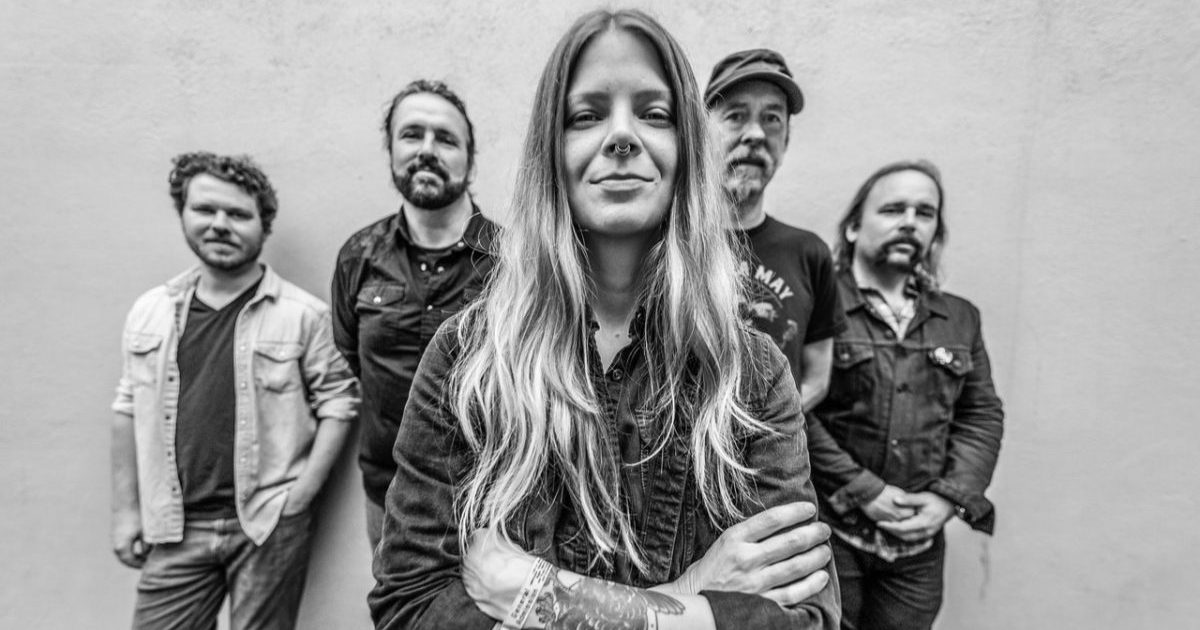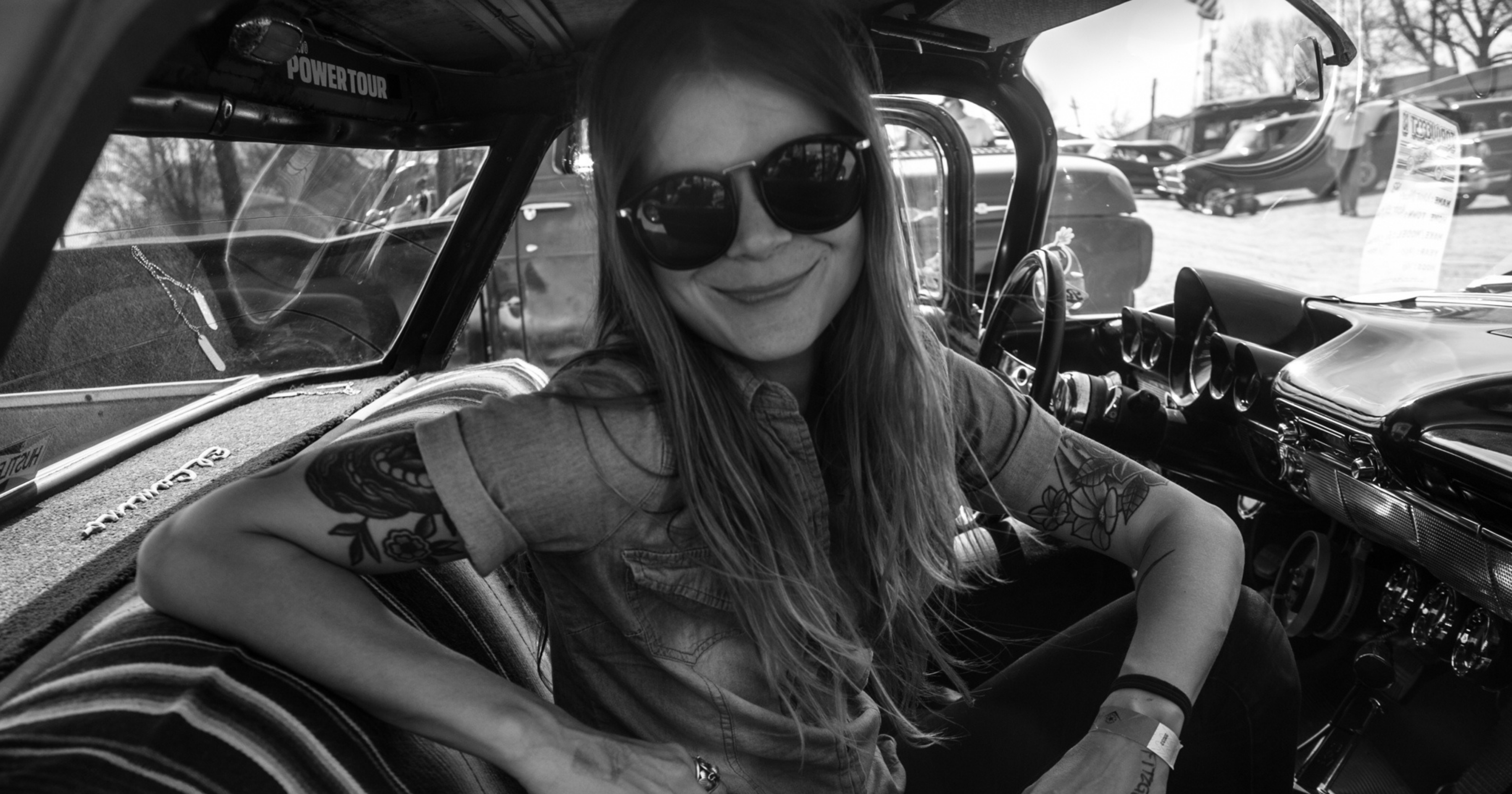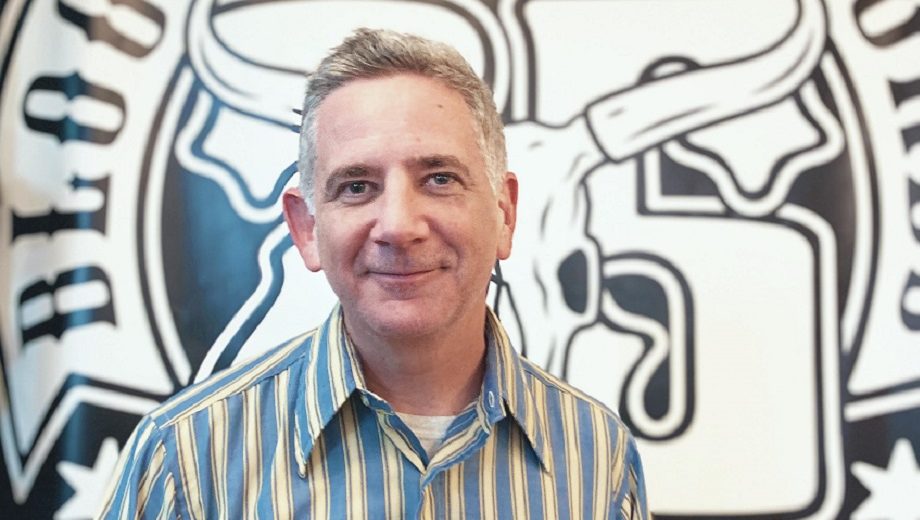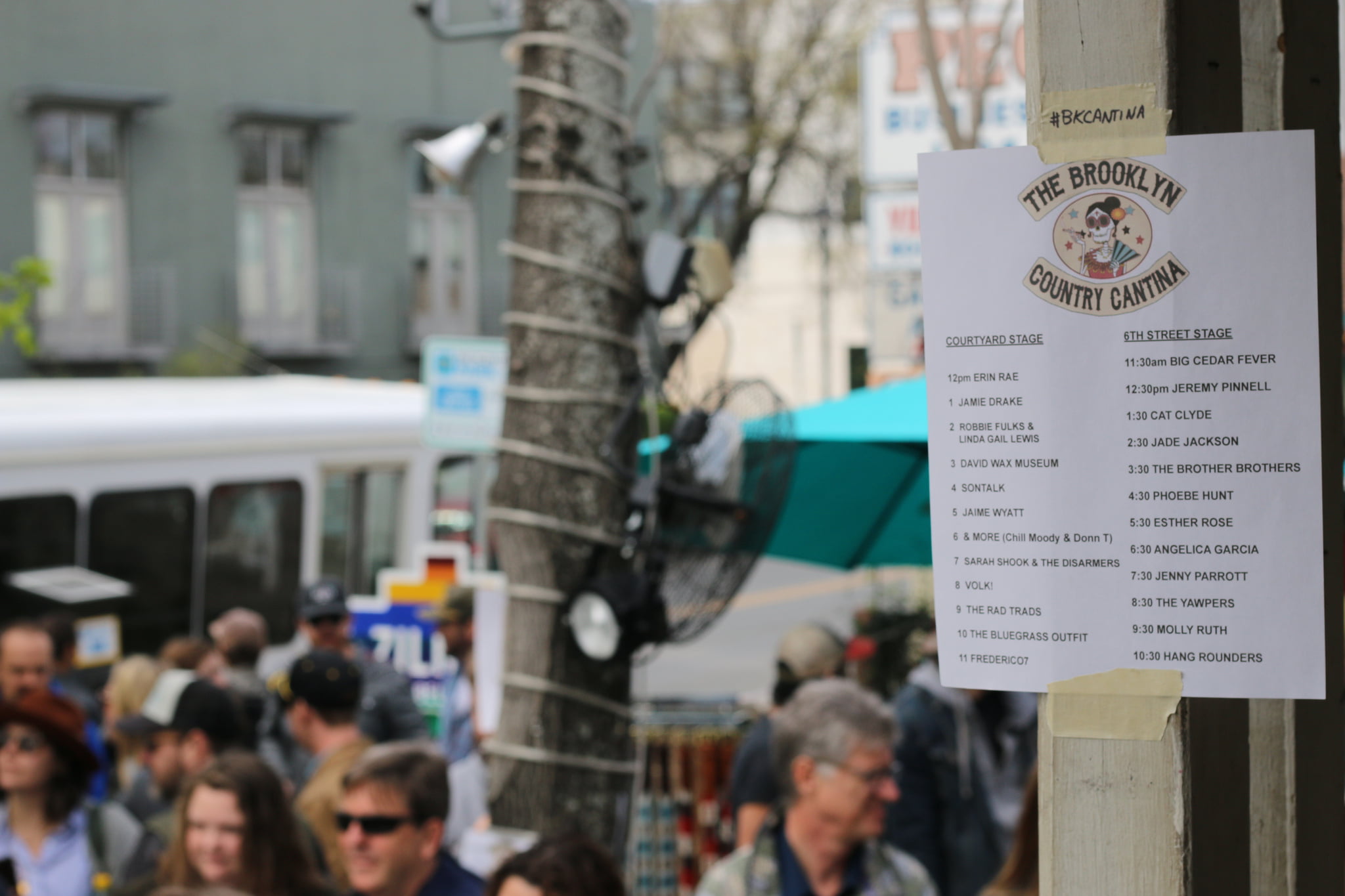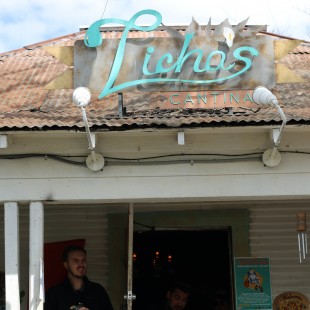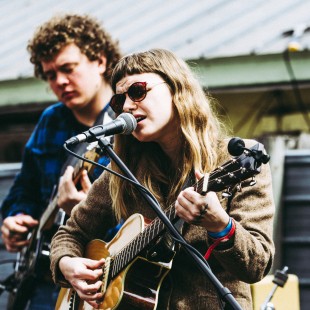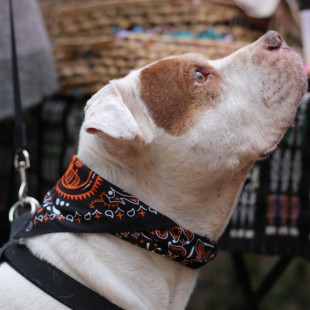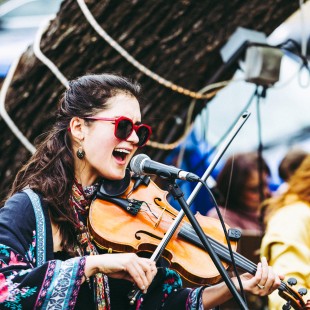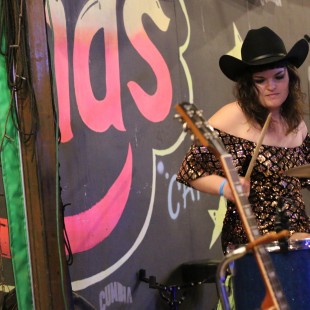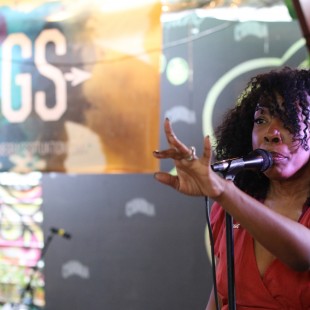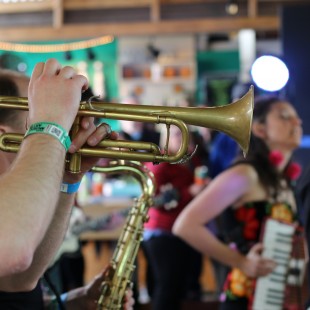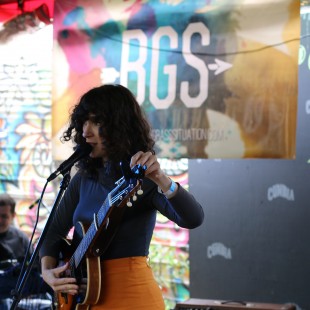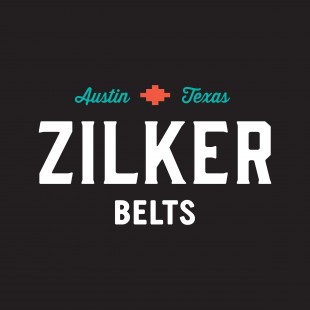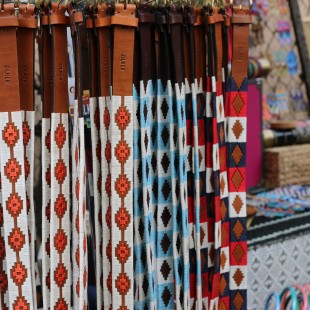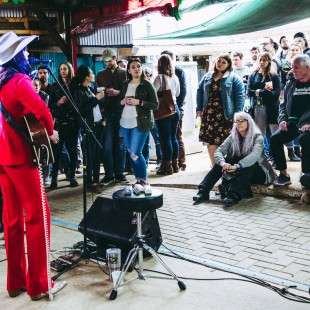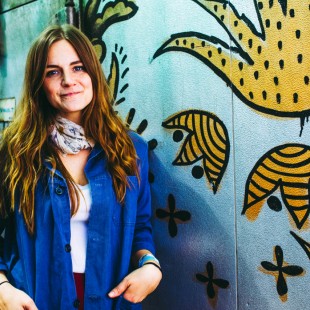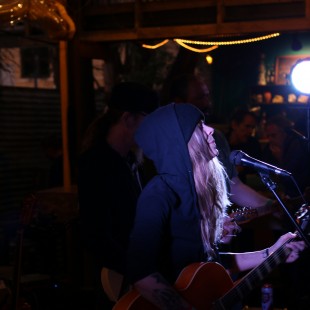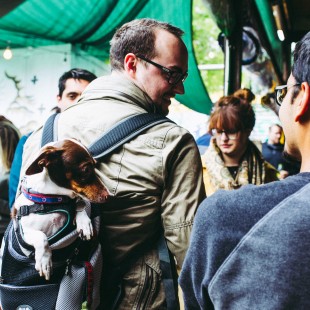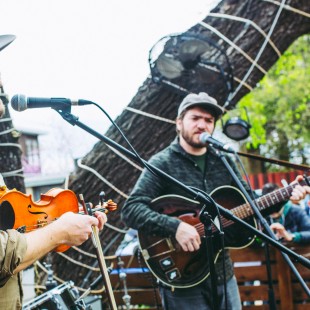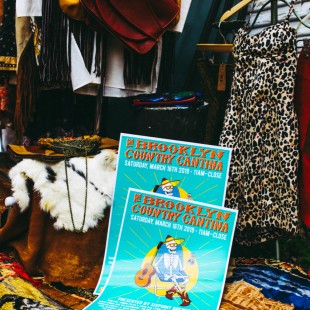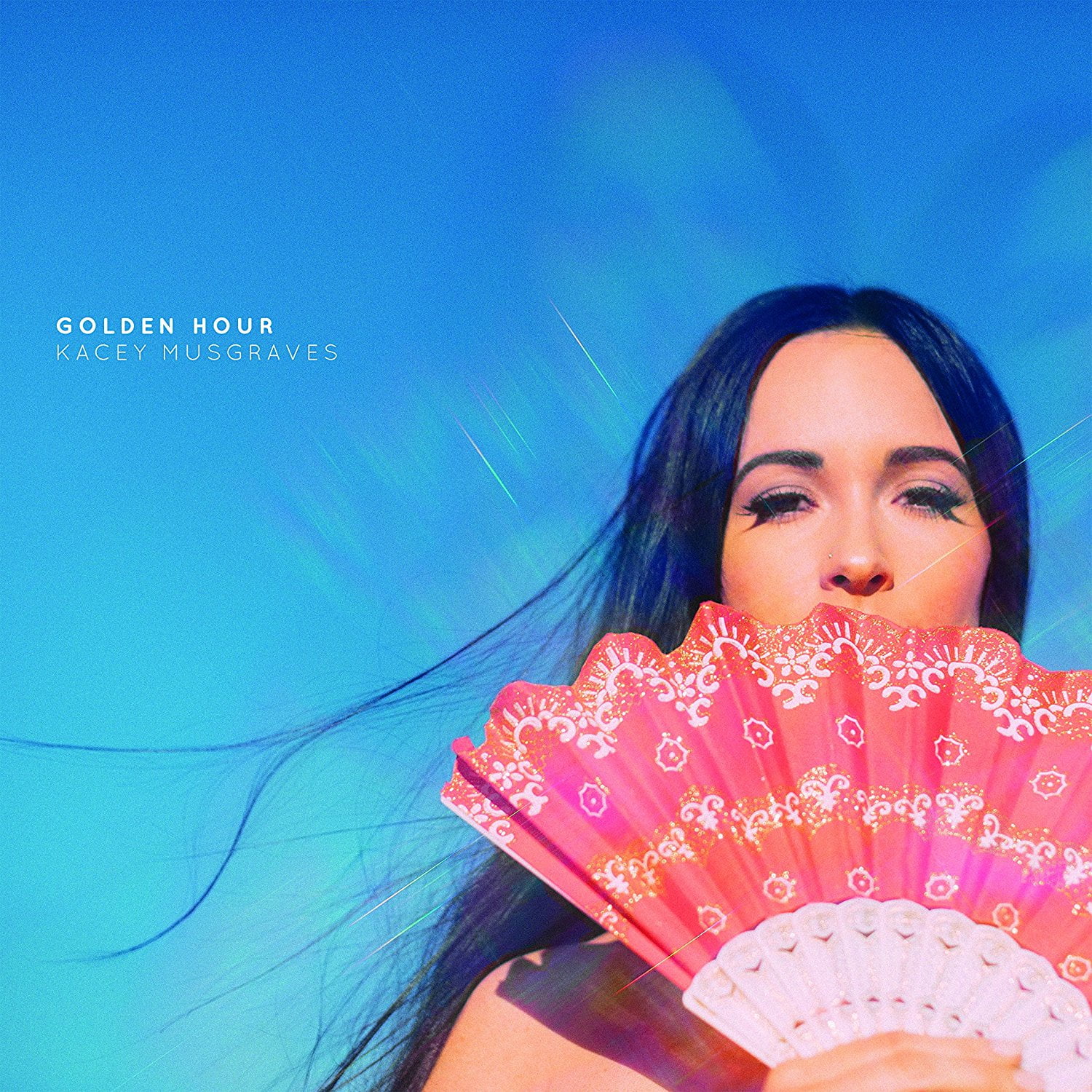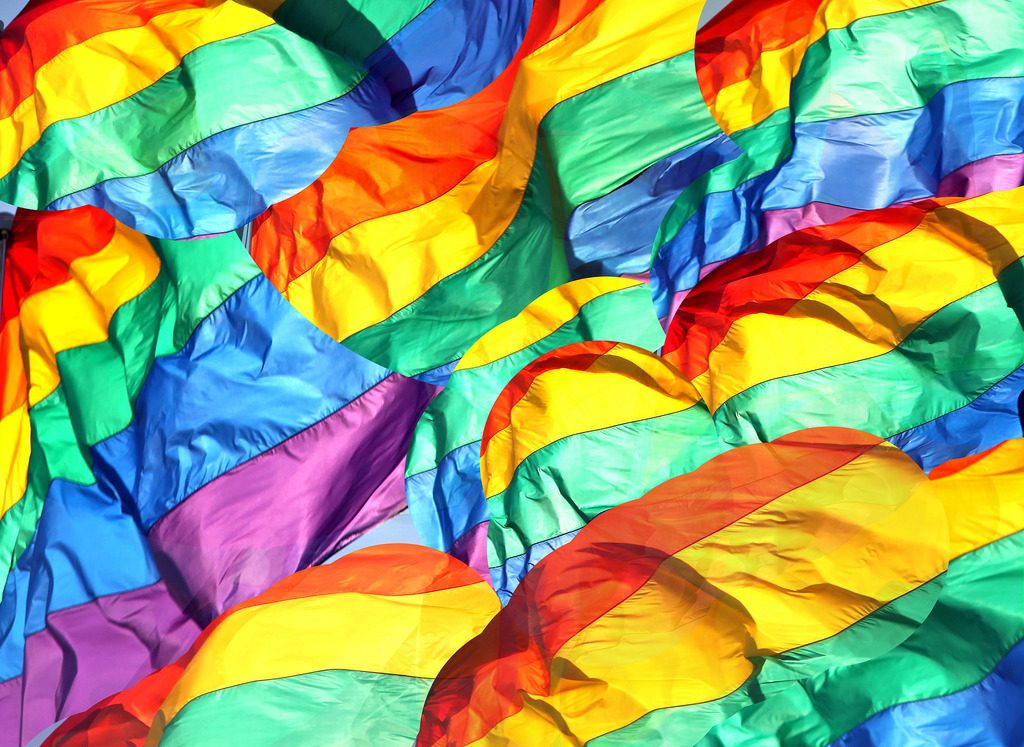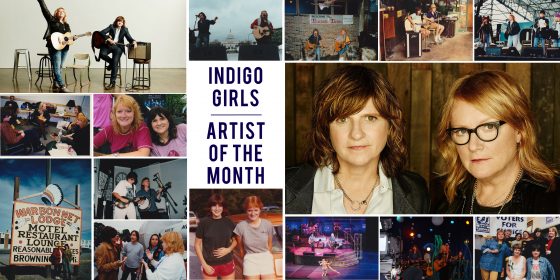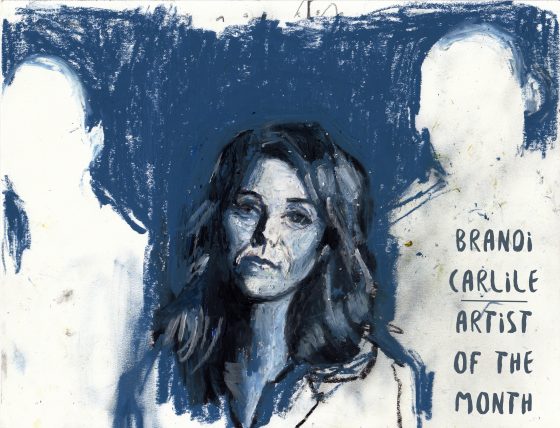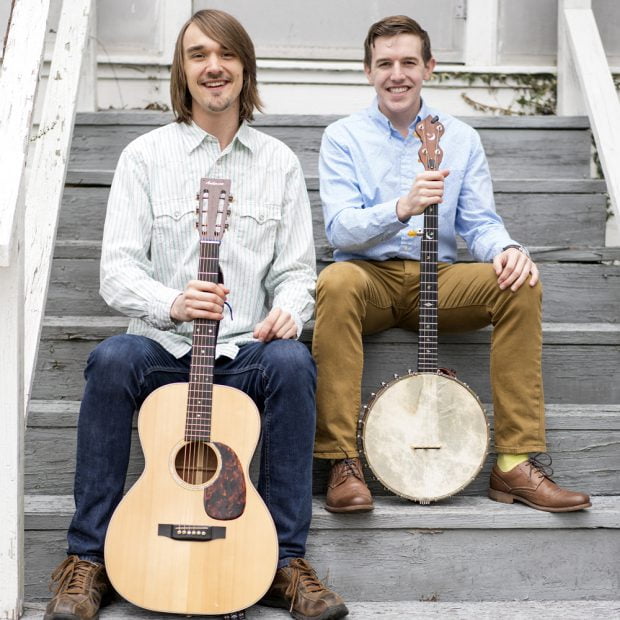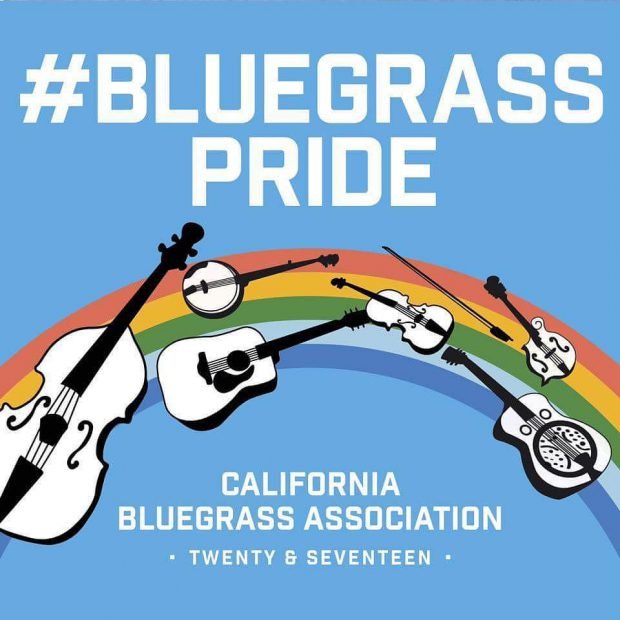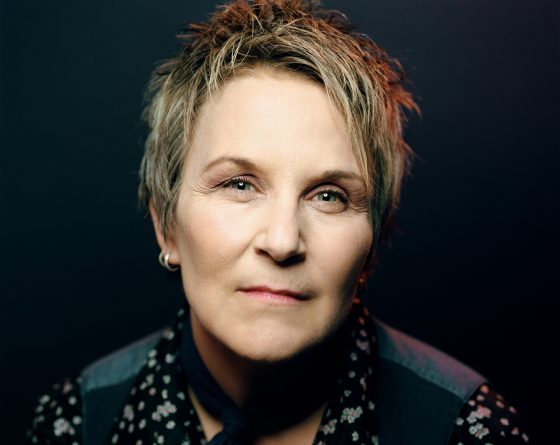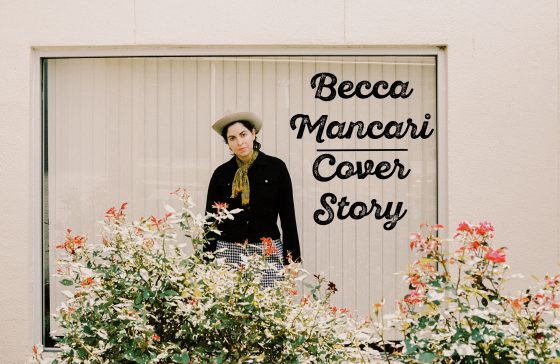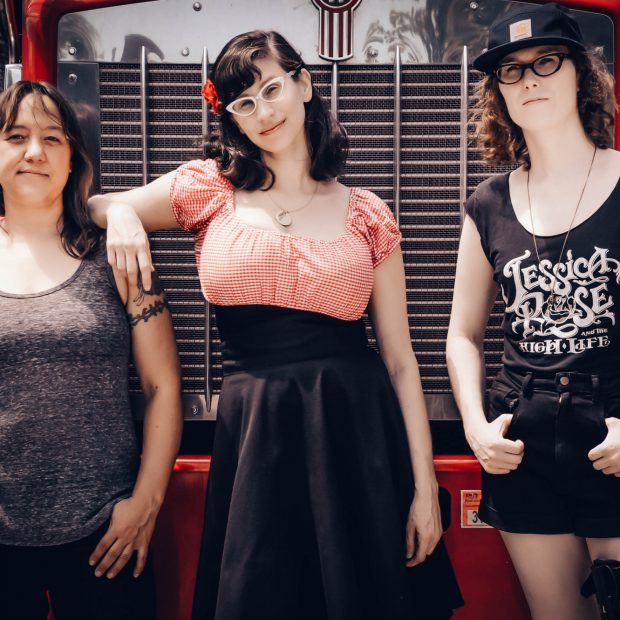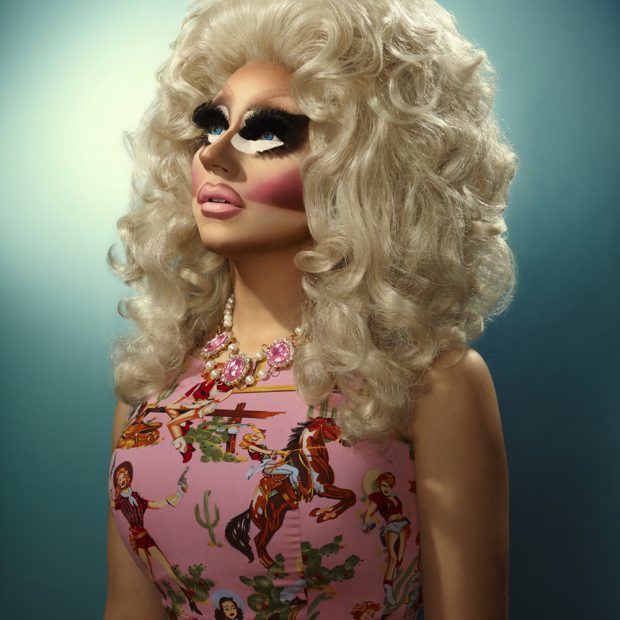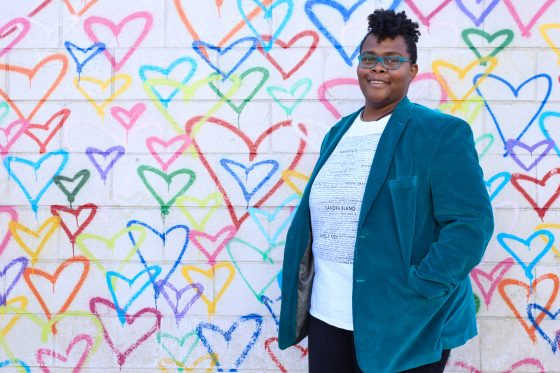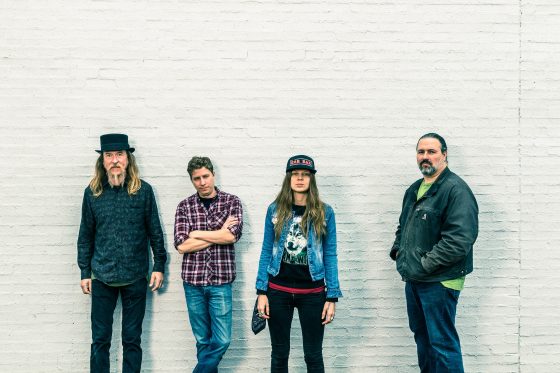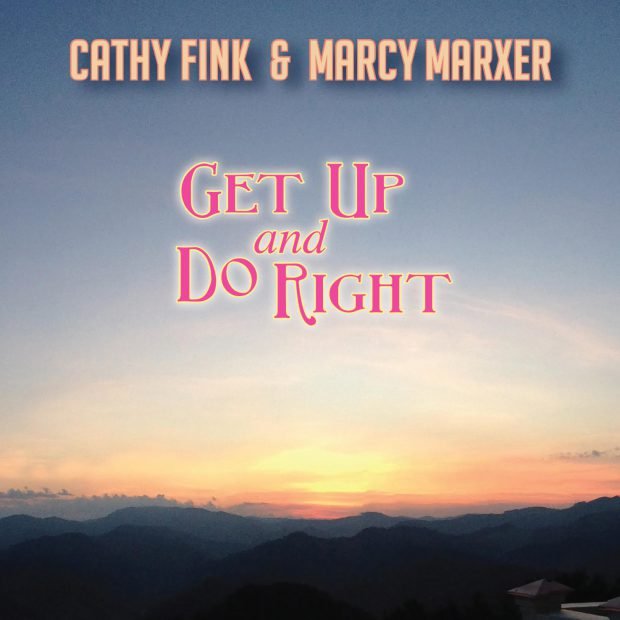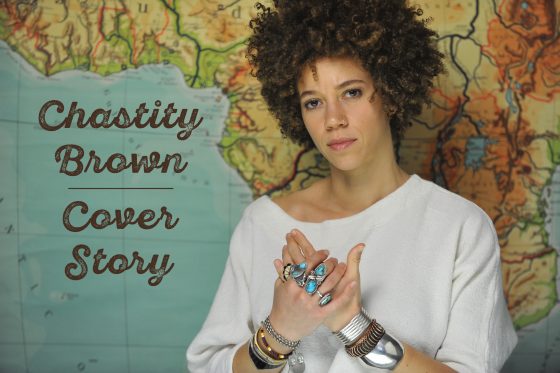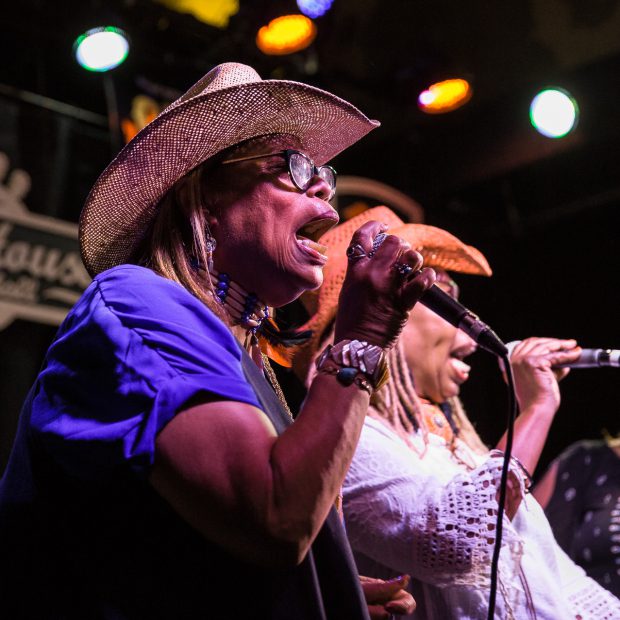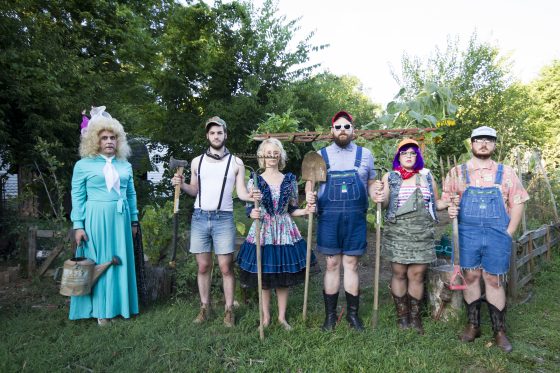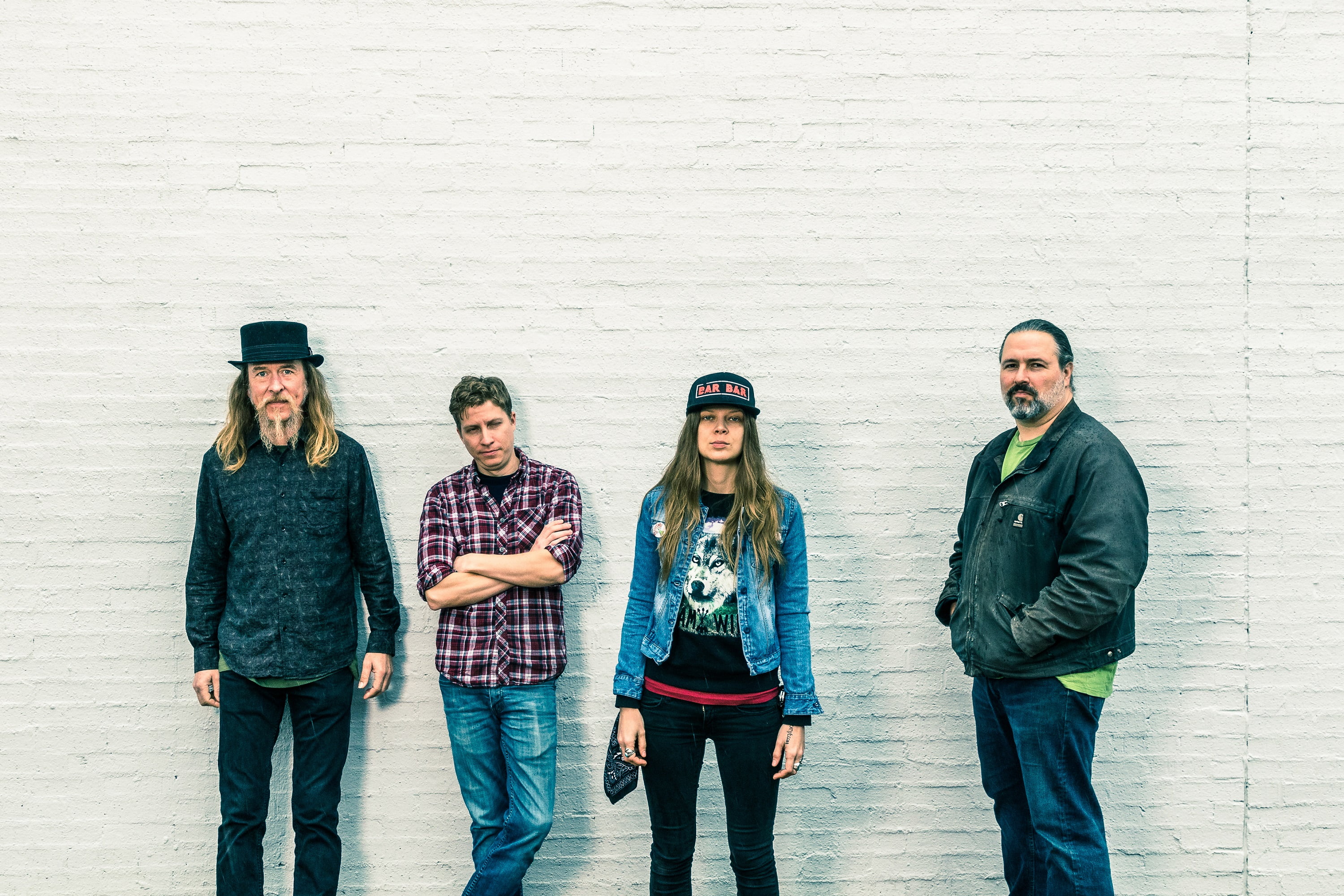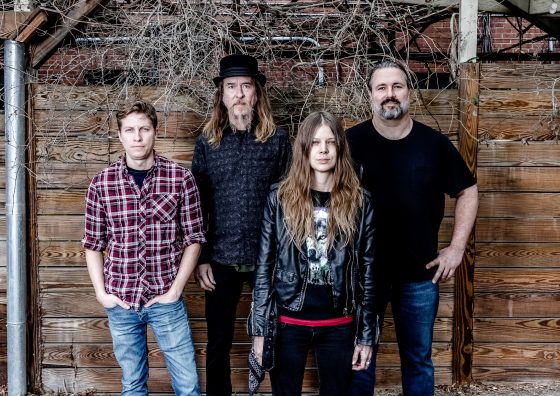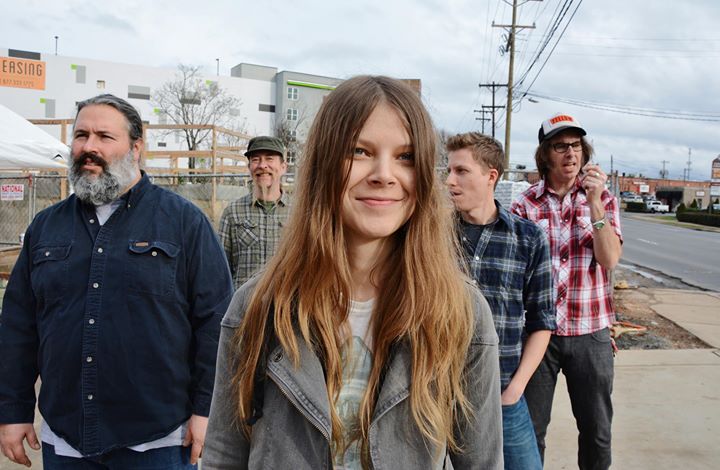Sarah Shook laughs at a mention that Nightroamer, the title of their third album with the Disarmers, could refer an activity they pursued as a late teen: after-dark escapes to engage in sexual rendezvous. But the same-named song is about more than breaking free; it’s about moving beyond, as in the lyric, “Don’t know where this road gonna take me/But I’d rather die than ever turn back.”
Several of the album’s 10 songs touch on searching for strength to reject toxic relationships and temptations, and even inspiring others to find that resolve. There’s some backsliding; in “No Mistakes,” they implore a wronged lover to “give me one last try.” But experiencing life at opposite ends of society’s spectrum — going from an ultra-conservative upbringing to identifying as bisexual and they/them nonbinary, and from addiction to sobriety — has toughened the North Carolina native, and Nightroamer’s sharp-edged mix of punk, pop, country and rock reflects that.
“One of the things that I really love about this album is that a lot of it was a surprise to me,” Shook says. “I don’t write albums; I write songs, and I make little stacks, like, this pile is definitely Disarmer songs, and this pile is probably not Disarmers. The last rehearsal we had before we flew to L.A. to make the record, we finished early, and morale was through the roof. Everybody was on cloud nine. The guys were like, ‘Do you have anything else that we could run through just for the hell of it? We’re done early, and it’d feel good to just blow off some steam.’ I was like, ‘I’ve got this song called, “I Got This” and a song called “Been Lovin’ You Too Long.” We ran through them, and they were like, ‘Yeah, those should be on the record.’”
Throughout Nightroamer, producer Pete Anderson adroitly sprinkles in touches such as an unexpected guitar chord, organ tickle or layered vocal; on “Been Lovin’ You Too Long,” he notably emphasizes Will Rigby’s around-the-beat drumming and tight-headed tom tones. On “I Got This,” Shook’s defiant tone also carries a sweetness reminiscent of a post-punk Kirsty MacColl, with hints of vulnerability that somehow reinforce its confident stance. But something else also stands out on the album: a spirit of resilience, even optimism — attitudes a person who’s endured repression, addiction and heartache might embrace once they dump the demons, break those cycles and finally realize, “I Got This.”
BGS: You grew up sheltered in a religious environment and broke out of that. When did you figure out that was not something you wanted to be part of, and how hard was it to get out?
Sarah Shook: It was a process that had many different steps. I’m still unlearning a lot of the stuff that I was raised to believe is true. I started having a lot of questions and doubts when I was a kid. I have two siblings, and I was the one that was always pushing buttons, asking questions that my parents were answering with, “Because I say so,” which, to me, was very unsatisfactory.
There was a lot of stuff in the Bible that wasn’t adding up. Just to clarify, we weren’t a family that (only) went to church every Sunday morning. We read our Bibles and had worship and prayer together every day. So I’m very familiar with the Bible as a text. In my early 20s, I hadn’t been going to church for years; I felt very disconnected from all of that, and pretty turned off by it. But this one day, I was just like, “I’m going to read the Bible one more time. And this time, I’m just going to read it, and everything that in the past I’ve justified with, ‘Well, I just have to trust that God knows best’ or ‘I just have to have faith,’ I’m not going to do that. I’m not gonna give God an out this time.”
I will never forget the moment: I was sitting on my porch in the sunshine, and it was a beautiful day; it was quiet. It was really scary to even be contemplating letting go of all of these beliefs that I was raised with (but) I made that decision on that porch that day. I was just like, “You know what, I don’t agree with this. And even if every word of this is true, I don’t see God as the good guy here; it’s not meshing with my view of humanity and the way that we should treat each other.”
Were you also questioning sexuality at that time?
I knew that I was attracted to girls when I was 8 or 9. Obviously, that wasn’t something I could share with my family. They weren’t openly hostile, but I knew that was not OK in their view. So, it was something that I kept to myself, and it was burdensome to feel like I couldn’t totally be myself, because it was around that time that I also was just, like, “I don’t think I’m a girl. And I don’t necessarily think I’m a boy, either.” But when you’re raised with the belief that gender is binary, if I’m not a girl, I must be a boy. You use the language that you have to try to make sense of your circumstance.
It wasn’t until my late teens that I started sneaking out of the house. I was 18 or 19. We weren’t allowed to date; we weren’t allowed to talk to boys in any romantic capacity. So I was going out and sleeping with people. My coming-out story was my dad asking me if I’d been sneaking out and sleeping with people. And I was like, “Yes.” He wasn’t impacted by that. Then he asked me if I’d been sleeping with women, and I was like, “Yeah,” and then he was just crying and devastated. Because that was, like, the worst thing in the world. At this point, my parents are in a totally different place, and I’m very grateful for that. If my folks, who are pretty conservative and religious, can grow and change and learn, then I’ve got hope for just about anybody.
Did you have to sneak to teach yourself piano and guitar?
I did not. We had a very old and not properly maintained upright piano in our hallway, just a catch-all for clutter. We were allowed to listen to classical and worship music; we weren’t allowed to listen to any contemporary Christian music, nothing with electric guitars or any sort of rock, bass or drums. So I started teaching myself piano when I was 8 or 9. I’m sure the first songs I wrote were religious in nature, because that’s all I knew at the time. When I was 16, I wanted to learn to play an instrument that was a little more portable, that I could take outside with me. So my folks got me one of those old-school posters that has a bunch of (guitar) chord shapes and I just sat in my room and learned chord shapes and strum patterns.
You weren’t allowed to listen to even contemporary Christian?
My parents were very protective. Even in the church setting, my siblings and I weren’t allowed to go to youth group. We weren’t allowed to go on trips that all of the kids our age were going on. They were very, very strict.
The more restrictive parents are, the more they’re pushing children to pursue the forbidden.
It’s almost a chicken-egg situation too, because it’s like, “I wouldn’t have known I wanted to do this if you hadn’t said something!” (Both laugh.)
You’re now part of a wave of artists trying to wake up and shake up attitudes in Americana and country and other realms, musically and socially. How did you get from that musical background to where you are now?
I have somewhat of an advantage because I didn’t grow up playing in bands and wanting to be in bands. This was not ever a career I would have chosen for myself. I’m very grateful to be where I am, and to have accomplished the things that we’ve accomplished as a band. But it does not come naturally to me. I’m introverted; I like my porch. But if I had been immersed in traditional country music from the word go, I probably would have gotten very jaded very fast. And really, there’s a lot of work that needs to be done. I cannot change anybody’s mind, and I’m not out to. But I am out to plant seeds. I am all about sharing whatever information I have with others who might benefit from it. I’m still learning a lot of shit, too. It’s important to be out front about that.
What turned that key that allowed you to hear and draw into this music? And how were you able to stay cloistered for so long? You were never able to turn on the radio and hear something else? I take it you were homeschooled.
All the way through. But yeah, it’s strange, and hard to pinpoint sometimes, because the progression is linear, but it’s evolution in fits and starts instead of one smooth line. The first stuff that I was listening to, I was at the mercy of coworkers. I was a cashier at a grocery store and my coworkers were giving me CDs to sneak into my house and listen to after my parents went to bed. So, my introduction to music was Elliott Smith, Belle and Sebastian, the Decemberists, Yo La Tengo and Gorillaz, and to me, that was just unbelievable. But I don’t necessarily seek out listening to music. I probably only listen to music once or twice a week because I need silence to get my tasks done. That’s just what makes my brain happiest. And I can’t listen to the radio at all because I cannot listen to advertisements.
How did that exploration of music turn into creating your own?
Because I was so sheltered musically, when I first started listening to actual, normal music, it was absolutely mind-blowing. There are no words for that experience, listening to Elliott Smith after having never heard anything like that in your life.
In my early 20s, I started dating this guy. We were sitting on his porch one day, and he had a little record collection and a turntable, and he put this album on. I was just like, “What is this? What is this called?” And he’s like, “This is Johnny Cash.” And I was like, “Yeah, but what kind of music is this?” And he’s like, “Well, this is country music.” And I was like, “I’ve been writing songs like this!” Not exactly, but the same kind of feel. We proceeded to listen to all of these old-school country artists.
I was just blown away because it felt like a homecoming. It was like, “I understand this music; this has already been coming out of me!” — having never heard it before. The second time that happened was with old-school punk. My introduction to punk was Sex Pistols and X-Ray Spex, and Germs and the Adverts. The first time I started hearing that stuff, I was just like, “I understand this. This is me.” Something good came out of all that isolation.
Photo Credit: Harvey Robinson
